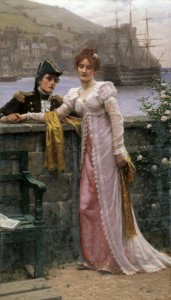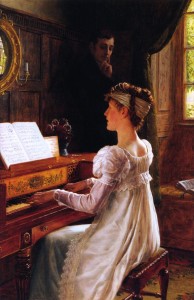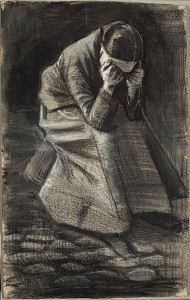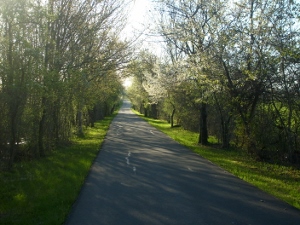Like Carolyn and Diane, I’ve been following with interest the discussion on the state of historical romances in general and Regencies in particular that’s been prominent on the romance blogosphere since Jane at Dear Author’s provocatively titled post, We Should Let the Historical Genre Die.
I’m never sure where I fit in during discussions of the State of the Regency, because I never can decide just how much of a Regency writer I am. Back when the Golden Heart and Ritas had two separate categories for Regencies and other historicals, I used to angst endlessly about where to enter my books. What if I entered them in Regency and got marked down for not having enough ballrooms and dukes? Or what if I entered them in historical, only to have some judge see the “1811” dateline at the top of the first chapter and think, “Hey! This is a Regency. I’m sick of Regencies. If I wanted to judge one, I would’ve signed up for that category.”
In the end, I entered The Sergeant’s Lady as a historical and its prequel, A Marriage of Inconvenience, as a Regency. Why? Well, The Sergeant’s Lady is set almost entirely in Spain during the Peninsular War with, as the title makes clear, a common sergeant as a hero. Despite its 1811-12 setting and British protagonists, it just doesn’t feel Regency. A Marriage of Inconvenience, on the other hand, is a house party story set in Gloucestershire, with a wealthy viscount for a hero and a poor relation cousin of a baronet for a heroine. Regency tropes everywhere you look.
My third book, An Infamous Marriage, is maybe a half-Regency. The hero and heroine are of the gentry rather than the nobility, and though they move in exalted circles in Brussels in the run-up to Waterloo because of the hero’s rank as a major-general, that’s not what their story is about. And my fourth book, A Dream Defiant, despite its 1813 setting is another non-Regency–it takes place in Spain in the aftermath of the Battle of Vittoria, the hero is a black soldier (the son of Virginian slaves who ran away to the British army and freedom during the American Revolution) and the heroine is another soldier’s widow, an ordinary village girl whose ambition in life is to take over her home village’s posting inn and make it famous for serving the best meals on the Great North Road.
I don’t want the Regency to die because I have such an insatiable passion for the opening 15 years or so of the 19th century. I mean, what would I do with all my research books if i couldn’t base my novels upon their contents?
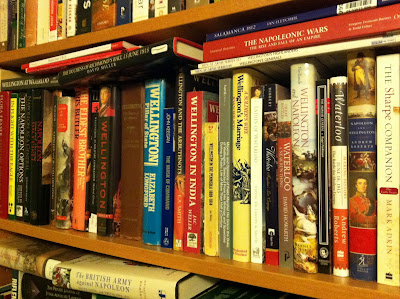
But when I write my Regencies (or Regencies in year only, as the case may be), I’m trying my best to ground them in a specific place and time–and that’s what I’d like to see more of in the genre as a whole. I know a lot of writers and readers love historicals for the “Once Upon a Time” feeling, and the last thing I want to do is deny anyone the pleasure of the stories they like best. But for myself I don’t want once upon a time. I want 1812 at the Battle of Salamanca, or Seattle in the 1850’s, or Philadelphia in 1776. And I don’t want the only alternatives to Regency to be Victorian, Western, and Medieval. I want Colonial American historicals. I want more stories set on the West Coast, like Bonnie Dee’s lovely Captive Bride. I want a Civil War romance from the Union side. Given the role of women at the time it’d be tricky to pull off, but I’d love to see an ancient Greek romance set sometime around the Greco-Persian wars. And so many more. I want more history–in my Regencies and across the genre.
What about you? What unexplored corners of the Regency world would you like to see more of? And what other periods of history strike your fancy?

